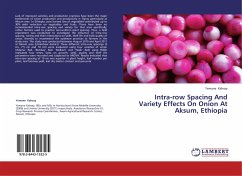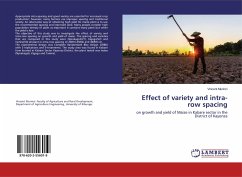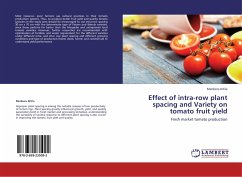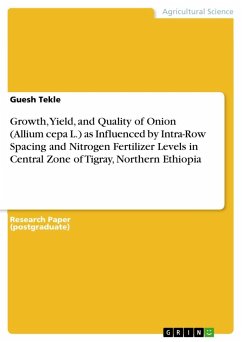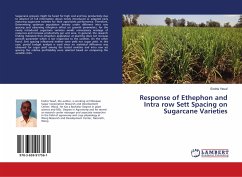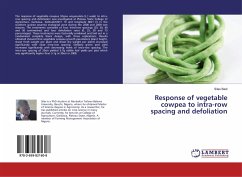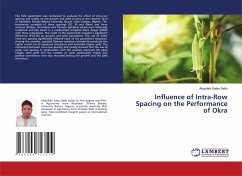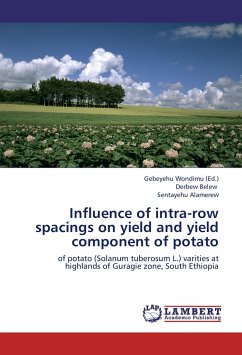Lack of improved varieties and production practices have been the major bottlenecks of onion production and productivity in Tigray particularly at Aksum area. In Ethiopia, post harvest loss of vegetables contributed up to 30% yield reduction on vegetables and fruits. There have been no recommended intra-row spacing and variety for that area specifically; rather farmers used to practice non-uniform plant spacing. Thus, a field experiment was conducted to investigate the influence of intra-row spacing, variety and their interactions on yield, shelf life and bulb quality of onion, thereby to recommend the optimum practices to farmers in the study area. The study was conducted between August 2010 and April 2011 at Aksum area (L/maichew district). Three different intra-row spacings (5 cm, 7.5 cm and 10 cm) were evaluated using four varieties of onion ( Adama Red, Bombay Red, Melkam and Nasik Red) using RCBD replicated four times. Data on growth, yield, quality and shelf life parameters were recorded and subjected to ANOVA. Results indicated that intra-row spacing of 10 cm was superior in plant height, leaf number per plant, leaf biomass yield, leaf dry matter content and percenta
Bitte wählen Sie Ihr Anliegen aus.
Rechnungen
Retourenschein anfordern
Bestellstatus
Storno

